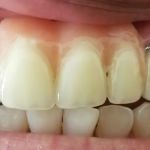
The Role of Fluoride in Preventing Oral Diseases
- How Fluoride Prevents Oral Diseases
- Fluoride in Toothpaste and Its Benefits
- The Science Behind Fluoride and Oral Health
- How Fluoride Helps Prevent Cavities
- Is Fluoride Safe for Teeth?
- Fluoride Products You Can Use
- How to Choose the Right Fluoride Products for You
1. How Fluoride Prevents Oral Diseases
Fluoride is a naturally occurring mineral that has proven to be a critical component in the fight against oral diseases. It strengthens tooth enamel, making it more resistant to decay caused by acids produced by bacteria in the mouth. By remineralizing weak spots on teeth, fluoride prevents cavities from forming and helps reverse early signs of decay. Regular exposure to fluoride can reduce the incidence of tooth decay and significantly improve overall oral health.
2. Fluoride in Toothpaste and Its Benefits
Most dental professionals recommend using toothpaste that contains fluoride to combat tooth decay. Fluoride in toothpaste helps maintain healthy teeth by delivering fluoride directly to the tooth surface. It acts quickly to strengthen enamel, making it more resistant to acidic attacks from food and bacteria. Not only does fluoride help in cavity prevention, but it also reduces plaque buildup and controls gum disease.
3. The Science Behind Fluoride and Oral Health
Scientific studies have shown that fluoride plays a pivotal role in oral health by interfering with the process of demineralization and promoting remineralization of enamel. The fluoride ion strengthens the mineral structure of the enamel, making it less soluble in acidic conditions. In fact, communities with fluoride in the water supply report significantly fewer dental cavities compared to areas without fluoride. This ongoing research continues to highlight fluoride’s importance in reducing oral disease prevalence.
4. How Fluoride Helps Prevent Cavities
One of fluoride's primary functions is to prevent cavities, a common oral health issue. Fluoride helps prevent cavities by making teeth more resistant to the acid that results from plaque bacteria. When fluoride is applied to teeth, it forms a protective barrier that helps prevent further decay. The benefits of fluoride are not just preventative; fluoride can also help remineralize areas where early cavities have begun to form, reversing minor damage before it becomes serious.
5. Is Fluoride Safe for Teeth?
Fluoride is widely regarded as safe for teeth when used as directed. However, excessive use of fluoride, especially in young children who may swallow toothpaste, can lead to a condition known as dental fluorosis. This condition causes discoloration or spotting of the teeth. To avoid this, it’s important to supervise children while brushing and use only a small, pea-sized amount of toothpaste. When used properly, fluoride offers significant benefits in preventing oral diseases and maintaining healthy teeth.
6. Fluoride Products You Can Use
Fluoride is available in a variety of products designed to improve oral health. The most common fluoride-containing product is toothpaste, but there are also fluoride mouth rinses, gels, and treatments available through your dentist. For those living in areas with non-fluoridated water, fluoride supplements can also be an option. These products work together to provide consistent fluoride exposure to the teeth, offering protection against decay.
7. How to Choose the Right Fluoride Products for You
When choosing fluoride products, it’s important to select those that meet your personal oral health needs. For most people, fluoride toothpaste with the American Dental Association (ADA) seal of approval is a great choice. If you're concerned about cavities or enamel strength, consider using fluoride mouthwash or a fluoride treatment from your dentist. To ensure the best results, choose products that suit your age group and any specific oral health concerns you may have, such as sensitive teeth or gum disease.
8. Ready to Improve Your Oral Health?
If you're looking for ways to protect your teeth and prevent oral diseases, consider incorporating fluoride into your daily routine. Whether it's through toothpaste, mouthwash, or professional treatments, fluoride can help you maintain a healthier smile. For more information on fluoride-based products or to find the best products for your needs, click here to explore your options!







 Rush Family Dental5.0 (161 review)
Rush Family Dental5.0 (161 review) Lafayette Hill Family Dentistry4.0 (5 review)
Lafayette Hill Family Dentistry4.0 (5 review) Steven J. Moravec, DDS, MS4.0 (189 review)
Steven J. Moravec, DDS, MS4.0 (189 review) Sunnyvale Pediatric Dentistry and Orthodontics4.0 (365 review)
Sunnyvale Pediatric Dentistry and Orthodontics4.0 (365 review) New Millennium Dental Group3.0 (30 review)
New Millennium Dental Group3.0 (30 review) By Design Dental4.0 (52 review)
By Design Dental4.0 (52 review) The Importance of Oral Health Education During Pregnancy for a Healthy Pregnancy
The Importance of Oral Health Education During Pregnancy for a Healthy Pregnancy Best Tips for Brushing Your Teeth Properly for Healthy Gums: Essential Techniques for Oral Health
Best Tips for Brushing Your Teeth Properly for Healthy Gums: Essential Techniques for Oral Health Why Skipping Dental Checkups Can Lead to Bigger Oral Health Problems
Why Skipping Dental Checkups Can Lead to Bigger Oral Health Problems Advantages of Porcelain Dental Restorations
Advantages of Porcelain Dental Restorations How Can Diabetes Cause Tooth and Gum Problems? Preventing and Managing Oral Health Issues
How Can Diabetes Cause Tooth and Gum Problems? Preventing and Managing Oral Health Issues Healthy Habits for Promoting Good Oral Health and Hygiene: Tips for a Healthy Smile
Healthy Habits for Promoting Good Oral Health and Hygiene: Tips for a Healthy Smile